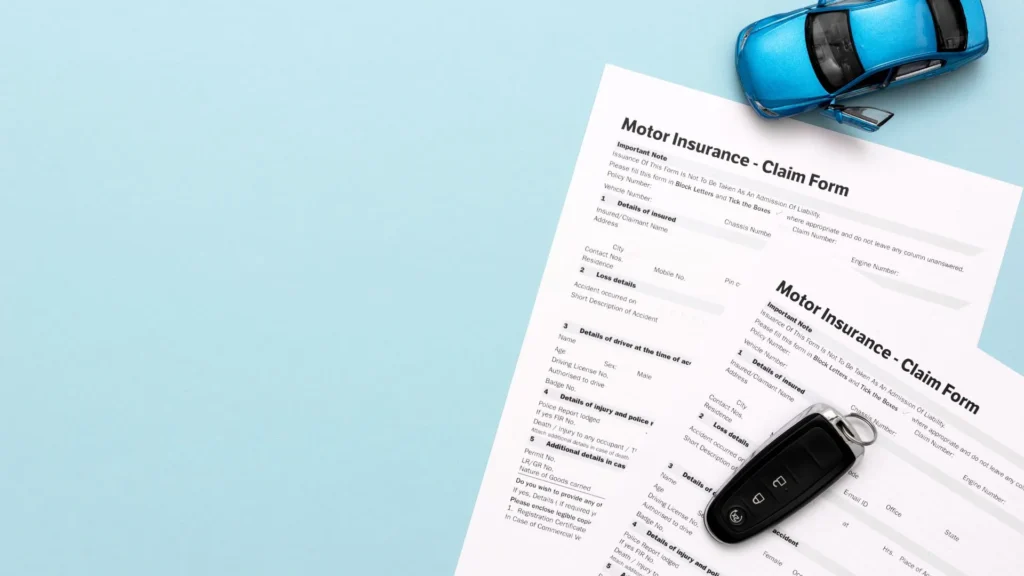Medical payment coverage is an additional coverage option within your existing auto insurance policy. It provides coverage for medical and funeral costs after a car accident. This form of auto insurance covers the policyholder’s and other passengers’ medical bills in case of an accident.
MedPay, also known as medical payments coverage, applies regardless of who is at fault for the accident.
Before buying any car insurance policy, it is crucial to compare quotes from different providers. Beem offers a reliable platform to compare quotes from major insurance providers in the country to find the best policy and save hundreds of dollars every year.
What Does Medical Payments Cover?
If the driver or their passenger gets injured in a car accident, medical payments coverage may cover the following expenses:
- Deductibles for health insurance
- Visits to the doctor or hospital
- Prosthetics, surgery, or X-rays
- Fees associated with ambulances and emergency medical technicians
- Nursing services provided by professionals
- Rehabilitation
- Funeral costs
- Dental care
However, medical payment coverage may differ depending on the state. Note that MedPay is not offered in every state across the US. States that don’t offer MedPay often provide personal injury protection (PIP) coverage for car owners.
Also Read: When Did Car Insurance Become Mandatory?
What Is Medical Payments Coverage on Auto Insurance?
In addition to auto insurance, a medical payments policy covers expenses related to medical treatment in the event of an accident. It covers the driver, any passengers in the vehicle, pedestrians who might get injured, and passengers in the other vehicle.
Medical bills from a car accident can be overwhelming so MedPay can be very useful. You can use MedPay to cover gaps in your insurance or your deductible if you have health insurance. In most cases, it’s inexpensive and gives you peace of mind that you won’t be obligated to pay for medical expenses for yourself or other passengers.
If you’re at fault for an accident, your bodily injury liability coverage will only cover those expenses. It does not cover you or any family members who are passengers.
If you are injured in an accident resulting from another insured driver’s negligence, bodily injury liability coverage may help, but determining liability can be time-consuming, and your medical bills might go unpaid.

What Does Medical Payments Insurance Cover?
The MedPay program covers a variety of medical expenses related to automobile accidents. The benefits covered by the plan include health insurance deductibles and co-pays, hospital visits, X-rays and surgery, ambulance, emergency medical technician fees, rehabilitation, nursing care, and some medical equipment, such as prostheses.
The coverage goes into effect irrespective of which driver is deemed at fault for the accident.
Since MedPay extends to pedestrians who might be hurt in an accident and even to the policyholder if they are hit as a pedestrian, it may be more useful in urban areas. Pedestrians are more likely to be injured in an urban area than in a suburban or rural area because foot traffic is more frequent.
Additionally, it can be helpful when driving irresponsibly. It doesn’t matter if your auto insurance policy is a no-fault policy if you are driving after being intoxicated or under the influence of drugs. If such a case arises, only MedPay will cover your medical expenses.
The rules and regulations about who pays for treatments and medical expenses vary by jurisdiction since MedPay is a supplemental insurance plan. It is advised to look carefully through your health insurance policy to understand the policy offerings.
In an accident, medical payments coverage protects the driver and passengers in the vehicle. You are also protected as a pedestrian by the coverage. In other words, it may be able to help you pay for medical treatment if:
- When you’re a passenger in a friend’s vehicle, and you get injured.
- Passengers are injured in a car accident sustained by you or a family member.
- You are walking across the street when you’re hit by a car.
MedPay vs. Personal Injury Protection
The two are somewhat similar, therefore, personal injury protection (PIP) is often confused with MedPay. In the event of a car accident, PIP and MedPay help cover your medical expenses and passengers’ expenses. As a result of the accident, PIP tends to cover a wider range of accident-related expenses, such as lost wages, ambulance and emergency room costs, childcare, cleaning services, or transportation to and from the doctor.
PIP and MedPay differ in the following ways:
| PIP | MedPay |
| In no-fault states, this coverage may be required, depending on the state’s laws | There are only two states that require this coverage |
| A deductible may apply | There are no deductibles |
| The cost of lost wages, ambulance fees, childcare, and cleaning services can be covered | Coverage is limited to medical expenses. |

Medical Payments Coverage vs. Health Insurance
You or a family member can benefit from medical payments coverage in case of an injury. Medical payments coverage can help you manage your copays regardless of whether you have health insurance, and it may also cover your passengers.
If you have a high deductible or pricey copays on your health insurance plan, having medical payments coverage is often a good idea. With medical payments coverage, you can use your health insurance without paying out-of-pocket for deductibles and copays.
As an added benefit, medical payments coverage extends to your passengers, protecting everyone in your vehicle. A licensed agent can help you determine whether you need medical payments coverage at a specific level based on your specific situation.
Also Know About : Medical debt
What Medical Payments Won’t Cover?
Despite MedPay’s expansive coverage, there are a few things it won’t cover, including:
- Expenses that exceed the limit on your auto insurance policy.
- If there are lost wages due to medical treatment or surgery after the accident.
- Expenses associated with child care if you face limitations due to the crash.
- Treatment that is unrelated to the accident.
- The medical expenses of anyone affected in the collision in the other vehicle.
Conclusion
Ensure to read your policy thoroughly for an explanation of your coverage. Auto insurance with Beem provides coverage for any damage to your vehicle, damage to other vehicles or property, and injuries to yourself or others.
Get quotes from different insurance companies to compare prices and get the best deals as per your requirements. The Medical Payments Coverage helps in covering medical and funeral expenses suffered by the driver or passengers in the vehicle as a consequence of an automobile accident up to the limit outlined in the policy.
While most health insurance plans cover deductibles and co-payments, you may still wish to carry medical payments insurance to cover these costs.





























